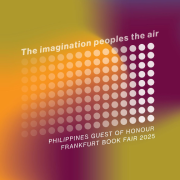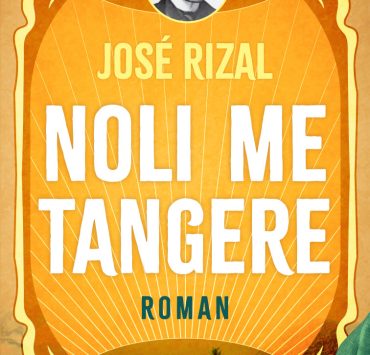FRANKFURT, GERMANY – The halls of the Frankfurt Buchmesse 2025, where the Philippines shines as the esteemed Guest Country, buzzed with intellectual energy as two of the country’s most respected figures—veteran journalist Howie Severino and multi-award-winning filmmaker and historian Nick Deocampo—graced the stage.
At precisely 1 p.m., the duo captivated a substantial audience with their profound and diverging reflections on the enduring power of documentation, unified by the core theme: “Books and Documentation are Facts of Life.” Their discussion moved seamlessly between the personal, the historical, and the global, underscoring the vital role of media in truth-telling and social change.
The Personal Journey to Preserving Truth
For Howie Severino, a career defined by rigorous reporting and documentary filmmaking found its genesis not in a professional assignment, but in a deeply personal, family story. He shared an anecdote that solidified his lifelong devotion to documentation: his attempt to learn a new piece of technology became an act of profound historical preservation. In the early 1990s, using one of the first consumer video cameras available, Severino aimed to simply master the technology. His subject was his own grandmother. He ended up capturing hours of invaluable family history, realizing the immense weight and value of the footage only after it was too late to capture more.
I just saw how valuable documentation was and I realized doing documentary and documentation was worth life’s devotion.
Howie Severino
This early, personal experience formed the foundation of his journalistic philosophy. Severino emphasized that in the modern era, truth-telling has become democratized. Technology has stripped the media elite of their exclusive control over narrative creation. He asserted that the tools of documentation are now accessible to all.
“Everyone has the power now and the means to produce a documentary,” he noted. “Not everyone could be a journalist but anyone can be a storyteller, archivist, and truth teller.” His message was a powerful endorsement of citizen journalism and the widespread power of individuals to contribute to the historical record, ensuring that diverse perspectives are not lost.

Crisis, Cinema, and the Power of the Book
Taking a long and sweeping historical view, historian and filmmaker Nick De Ocampo discussed the crucial role of documentation, particularly books and cinema, during times of social crisis and their surprising historical connection to Philippine, U.S., and German relations that spanned over a century. Deocampo immediately reminded the audience of the paramount power of the written word during the nation’s foundational moments, “A 100 years ago or more, the book Noli Me Tangere was the medium upon which a revolution was articulated and indeed was part of that revolution.”
He then highlighted a significant, yet often overlooked, historical thread connecting the Philippines to the host country, noting, “Germany had a role to play with that because we all know that Jose Rizal finished his Noli Me Tangere in Heidelberg.” This nod to Rizal’s time in Germany served as a powerful historical resonance within the very halls of the Buchmesse. Jumping forward several decades, Deocampo connected the role of media to later eras of upheaval.
90 years after, there was a revolution against a dictator, this time the way cinema figured, or motion pictures figured in the social process is very important.
Nick Deocampo
Deocampo shared his central thesis, arguing that the need for documentation surges precisely when society is under duress. “It is in moments of great social crisis that mainly books and documentaries really spike in terms of their production.” He pointed out that “cinema increased and spiked at the time of social stress,” where documenting “the horrors of war, the brutality of colonization” became essential acts of resistance and historical accounting.
His analysis focused on the often-overlooked Philippines and German connections. While the nation’s relations with Spain and the United States are exhaustively documented, Deocampo stressed that “there is something tangible in the relationship between Germany and the Philippines” that merits deeper study. He proposed that analysts need a more complex framework than a simple Hegelian dialectic when examining these global ties, advocating instead for a “multi-dialectical” approach that acknowledges numerous simultaneous influences.
Ultimately, Deocampo circled back to the book as the supreme tool for intellectual clarity. “It is not just films that we need to be making but rather books,” he concluded, emphasizing that the deliberate, structured act of “writing about them [social issues] somehow clarifies those issues.”
The combined reflections of Severino and Deocampo provided the Frankfurt Book Fair audience with a compelling narrative: from the personal video camera to the revolutionary novel, documentation remains the essential human endeavor for preserving truth, driving change, and achieving clarity in a turbulent world.
The Frankfurt World Book Fair runs from October 15-19, 2025. For calendar of activities and events, visit: Besuchen | Frankfurter Buchmesse.
What's Your Reaction?
Nats Sisma Villaluna has been serving the Filipino community in Spain for more than 15 years. His volunteer works include teaching Spanish to Filipinos, and as artistic director of the Coro Kudyapi, a group of musically inclined young Filipinos in Barcelona. His passion to serve the Filipino community now extends to other countries in his role as Publisher and Editor-in-Chief of the new The Filipino Expat Magazine.




